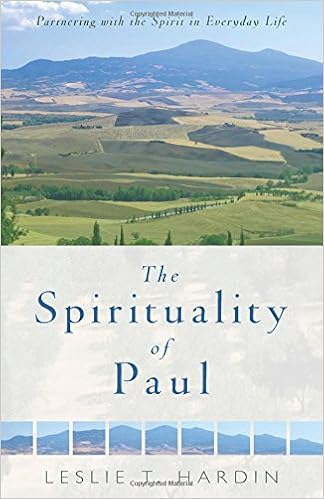
The
Spirituality of Paul by Leslie T. Hardin
Robust and dense argumentation, heavy theological
jargon, and weighty social issues, are a few of the things that come to mind
when we think of the apostle Paul. Yet,
key to his development as a follower of Christ is his life in the Spirit, his
spiritual life. Professor Leslie T.
Hardin steps in with a book entitled The
Spirituality of Paul: Partnering with the Spirit in Everyday Life, a work
focused on the prayer, proclamation, and worship of Paul given to Christ.
Leslie explores the context of prayer in the life of
Paul by looking at his writings. In the
writings of Paul, Leslie finds an enormous freedom in prayer that also looks at
the kind of prayer that Paul called others to carry out. He writes, “Paul will not prayer degenerate
into simple asking, though, as if God were a spiritual vending machine. The language of “thanksgiving” is the most
frequent of all the prayer vocabulary in Paul’s epistles. (47) His prayers of thanks were for varied
reasons, for converts, for the grace of God in Christ, and for challenges for
his readers. Nevertheless, Paul’s
prayers ran the spectrum but were of an intense nature but not all the
same. He used exalted language at times
while using personal and more informal language for his close friends.
Very concrete to Paul’s mission and preaching is the
central idea that “Paul’s descriptions of salvation are more corporate than
individualistic,…” (95). Drawing on the
rich stories of Abraham and the blessing of all nations through this patriarch,
Paul saw Christ’s coming, dying, and rising as incorporating both Jews and
Gentiles into one family of God. Where
the rubber meets the road for Paul is his insistence that since there is a
unity in the people of God, weekly gatherings are to be unified offerings and
not replete with economic, social, and personal divisions (97). Although tight divisions remained as in
Corinth and still do in our culture, Paul pushes back with a focus on the all
unifying good news of Jesus Christ as the breaker of all that destroys unity.
Thanks to Kregel Publications for the copy of this book
in exchange for an honest review.
Comments
Post a Comment